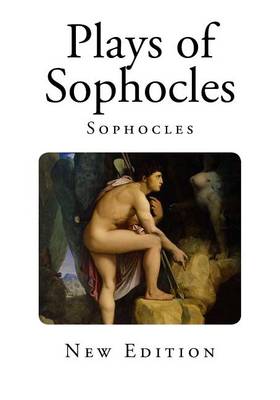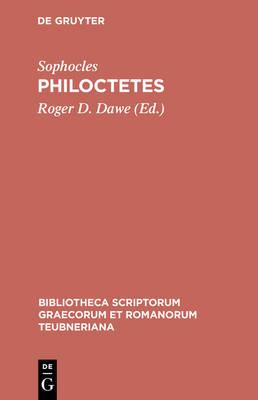Sophocles
2 total works
Based on the conviction that only translators who write poetry themselves can properly re-create the celebrated and timeless tragedies of Aeschylus, Sophocles, and Euripides, the Greek Tragedy in New Translations series offers new translations that go beyond the literal meaning of the Greek in order to evoke the poetry of the originals. Under the general editorship of Peter Burian and Alan Shapiro, each volume includes a critical introduction, commentary on the text,
full stage directions, and a glossary of the mythical and geographical references in the play.
En route to fight the Trojan War, the Greek army has abandoned Philoctetes, after the smell of his festering wound made it unbearable to keep him on ship. Ten years later, an oracle makes it clear that the war cannot be won without the assistance of Philoctetes and his famous bow, inherited from Hercules himself. Philoctetes focuses on the attempt of the heroes Odysseus and Neoptolemus to persuade the bowman to sail with them to Troy. First, though, they must assuage his bitterness
over having been abandoned, then win his trust. But how should they do this-through trickery, or with the truth? To what extent do the ends justify the means? To what degree should private interest be compromised for the sake of public duty? These are among the questions that Sophocles puts forward in this, one
of his most morally complex and penetrating plays.
full stage directions, and a glossary of the mythical and geographical references in the play.
En route to fight the Trojan War, the Greek army has abandoned Philoctetes, after the smell of his festering wound made it unbearable to keep him on ship. Ten years later, an oracle makes it clear that the war cannot be won without the assistance of Philoctetes and his famous bow, inherited from Hercules himself. Philoctetes focuses on the attempt of the heroes Odysseus and Neoptolemus to persuade the bowman to sail with them to Troy. First, though, they must assuage his bitterness
over having been abandoned, then win his trust. But how should they do this-through trickery, or with the truth? To what extent do the ends justify the means? To what degree should private interest be compromised for the sake of public duty? These are among the questions that Sophocles puts forward in this, one
of his most morally complex and penetrating plays.

